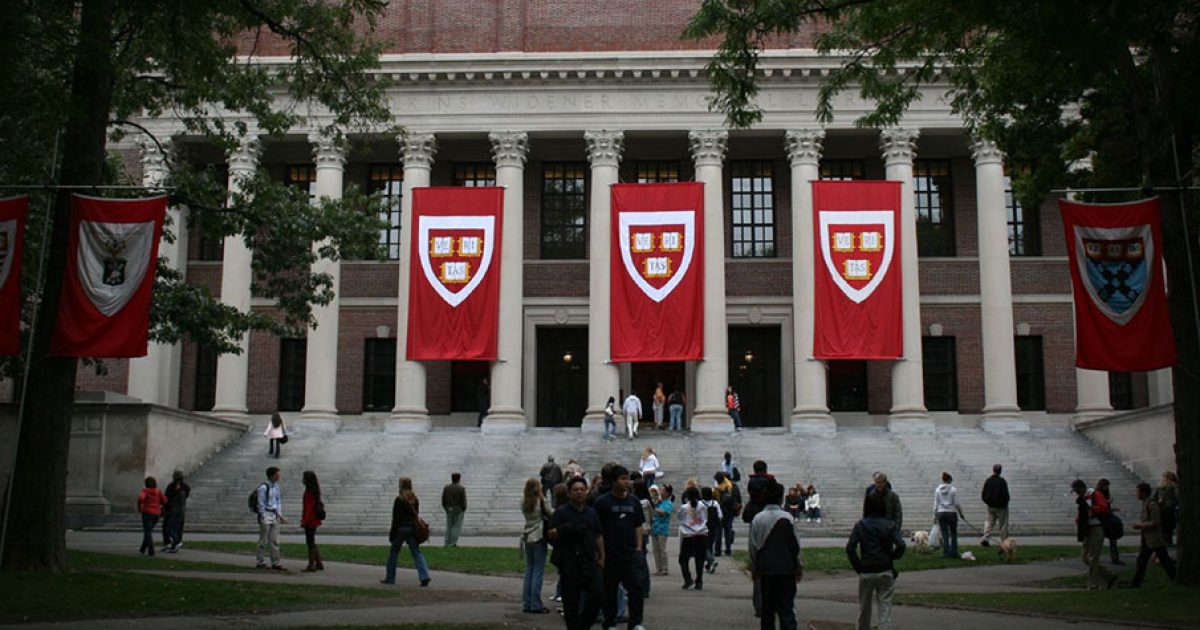It costs students $8,000 a month to attend Harvard University, $72,000 for nine months of Ivy League snootery. In addition, Harvard enjoys a $37.6 billion dollar endowment bankroll.
So, why does this bastion of liberal philosophy and its pinhead academics need any taxpayer money at all? Well, they certainly are getting it.
Once such case is Harvard’s mouse fighting operation, in the name of science, of course.
Uh-huh. If only Michael Vick had known that he could torture as many dogs as he wanted and not only avoid prison but get Mom and Pop America to pay him for doing it.
Harvard University researchers pitted mice against each other in what one observer called a “mouse fight club,” altering one mouse’s genes and then sticking it next to an “intruder” mouse and seeing how long it took for them to go at it, reports The Washington Times.
But the university’s researchers forgot to mention in their press release that they’d used nearly $900,000 in federal taxpayer money to fund the study — an omission that violated longstanding federal transparency laws, according to a new report being released Tuesday by a coalition of government watchdogs.
Out of 100 Ivy League schools’ projects examined by the coalition in 2016, not a single one complied with the transparency rules, effectively hiding federal taxpayers’ hand in a number of controversial animal research projects.
“There’s a whole lot of wasteful experimentation on animals that the public is concerned about,” said Justin Goodman, vice president at the White Coat Waste Project, one of the groups behind the new study. “If they knew exactly how much money is being spent on some of these projects, like forcing dogs to run on treadmills until they have heart attacks, they would give a second thought about whether this is the way they want their money spent.”
The transparency rule has been part of spending bills every year since 1989, when it was first inserted by the late Sen. Ted Stevens. In particular, the language governs the more than $150 billion-per-year measure that funds the Labor, Education and Health and Human Services departments. That also includes money for the National Institutes of Health, the federal government’s main research arm.
Under the rule, anyone who gets federal grant money and then issues a press release, bid solicitation or other document describing the project must detail how much of their spending is from federal taxpayers and how much is from other resources.
Mr. Goodman’s group teamed up with Restore Accountability, a watchdog founded by former Sen. Tom Coburn, and found poor compliance everywhere. They identified 51 noncompliant Harvard projects, 14 projects at Yale, 11 at the University of Pennsylvania, six each at Brown, Columbia and Cornell, and three each at Princeton and Dartmouth.
The vast majority of projects examined by the group were funded by the National Institutes of Health, but the National Science Foundation and Defense and Veterans Affairs departments were also listed as the source of some of the money, which came to nearly $250 million in 2016 among the Ivy League.
Harvard accounted for some $177 million of that.
Harvard’s media relations office didn’t respond to an email requesting comment Monday on how it handles the Stevens Amendment and compliance guidance for its researchers.
The problem is so extensive that the Senate’s top five waste-watchers are firing off a letter this week asking the federal comptroller general to investigate the violations.
“We believe it is unacceptable for agencies and grant recipients to disregard longstanding transparency requirements, and those agencies have an obligation to spend taxpayer dollars effectively and efficiently,” GOP Sens. Jeff Flake, Ron Johnson, James Lankford, John McCain and Rand Paul said in their letter to the Government Accountability Office.
For his part, Mr. Coburn, who was Congress’ top waste-watcher until his retirement more than two years ago, said it was disappointing Capitol Hill had allowed the universities to get away with hiding their ties to federal money for so long. He said outside groups have had to step in.
“The report’s findings are an embarrassing, but all too familiar, example of oversight organizations doing the job Congress has failed to do. Transparency in how taxpayer dollars are spent is essential for Congress to restore the American people’s trust, and these problems should be immediately addressed,” Mr. Coburn said.
Mr. Goodman said there are some universities that seem aware of the policy, and even include guidance for how to comply on their grant websites. But others seem to thumb their nose at the transparency requirement.
“It’s a mix of ignorance and arrogance,” he said. “It’s possible that people are not aware of the conditions that govern their accepting of taxpayers’ money, and I think there is a level of arrogance where experimenters often feel they don’t have to be accountable to anybody.”





